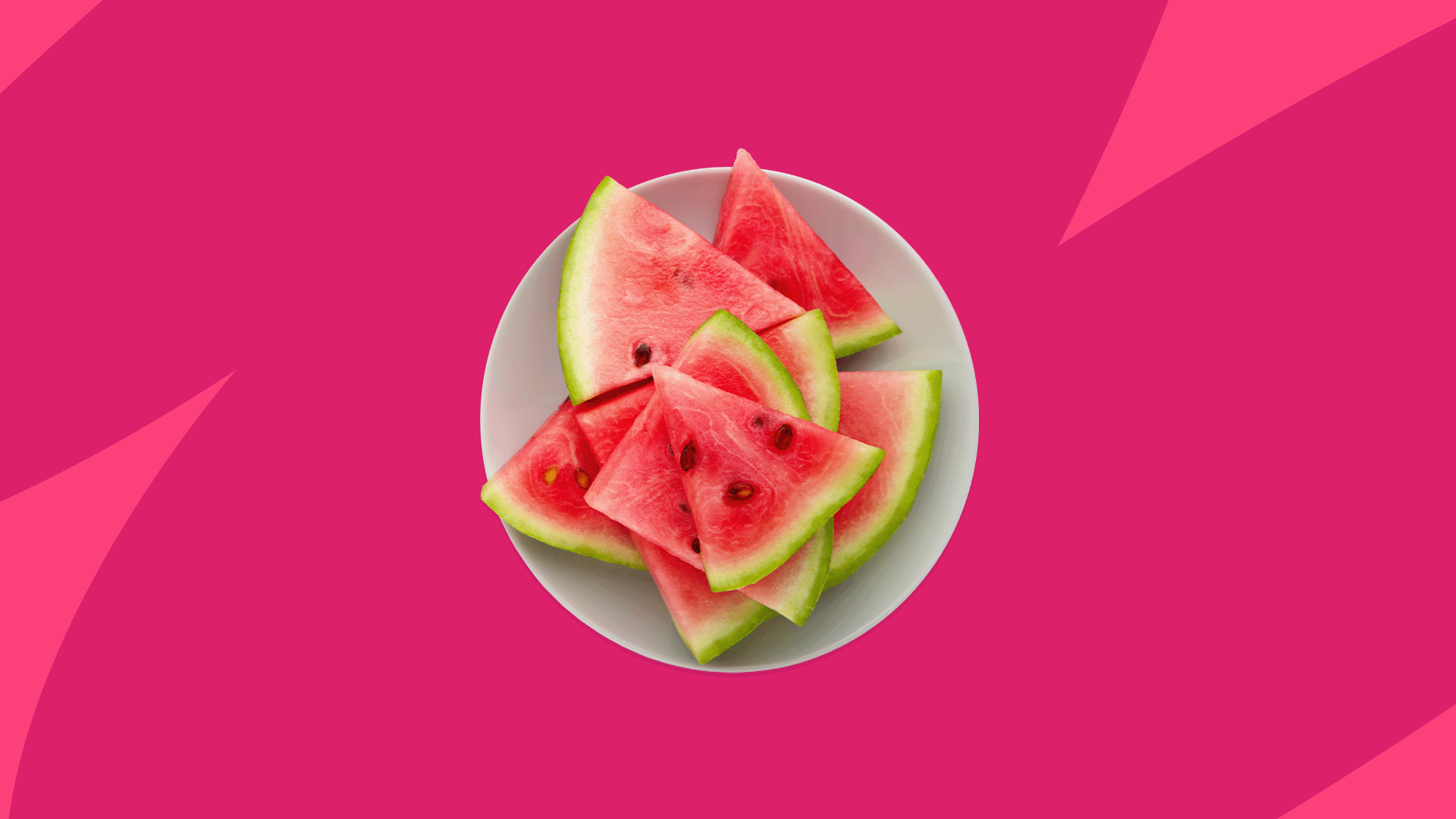Key takeaways
Despite its sweet taste, watermelon is lower in sugar than other fruits, and people with diabetes can safely eat it as part of a balanced diet.
One serving of watermelon is a little less than two cups. Those with diabetes should consume watermelon with protein or nuts to help level out blood sugar.
Berries, apples, pears, citrus fruits, and undried apricots and plums are less likely to cause blood sugar spikes due to their high fiber content.
Snacking on chilled fresh fruit is a refreshing way to beat the heat on the hottest of summer days. While taking advantage of spending time in the sun, nothing quite compares to biting into a perfectly ripened, juicy slice of watermelon at a picnic, beach, or backyard barbecue. But if you have diabetes or prediabetes, can you safely eat watermelon, with its natural sugar, or will the sugar content throw off your whole day? We went to the medical experts to find out.
Does watermelon raise blood sugar?
“Eating large quantities of any food with carbohydrates can potentially raise blood sugar levels,” says Sara Chatfield, RDN, a Chicago-area registered dietitian. “While watermelon typically has a sweet taste, it’s actually lower in sugar than many popular fruits due to its high water content.”
To understand exactly how watermelon will affect your blood sugar, we need to look at the glycemic index, sometimes referred to as GI. The glycemic index ranks food from 0 to 100 to indicate how much a certain food will increase blood sugar levels. Foods ranked at 0, like lean beef, are slowly digested and will not spike blood sugar. On the other end of the spectrum, pure sugar measures at 100 on the glycemic index and is not safe for people with diabetes outside of small, occasional amounts.
Watermelon has 17 grams of sugar per 280-gram serving and a 72 glycemic index rating, but that doesn’t tell the whole story.
It’s also important to factor in the glycemic load (GL), which looks at how quickly your blood sugar will rise based on the amount you eat. To find the glycemic load, you multiply the glycemic index by the amount of carbohydrates in a serving size and then divide that number by 100. This gives a 280-gram serving of watermelon a glycemic load of 15, which is considered a medium GL.
RELATED: What are normal blood sugar levels?
Can people with diabetes eat watermelon?
“Yes, individuals with diabetes can safely enjoy watermelon as part of a balanced diet,” says Stewart Parnacott, CRNA, a nurse anesthetist in Atlanta. In addition to stressing that “moderation is key,” he has a helpful tip for people with diabetes who want to eat watermelon responsibly: “Monitoring portion sizes and pairing watermelon with protein or healthy fats can help manage blood sugar levels effectively.”
This means that those with Type 1 diabetes and Type 2 diabetes can eat watermelon safely as long as they’re monitoring their portions and blood glucose levels. According to the Nutrition Labeling and Education Act (NLEA), a serving of watermelon is 280 grams, which is a little less than 2 cups, diced or balled. A one-cup serving of watermelon weighs in at about 152 grams. If you eat watermelon as a snack, try to add some nuts, eggs, or yogurt to your plate for protein and healthy fats. This combination can better level out your blood sugar than eating carbs alone.
RELATED: What’s the best diet for diabetes?
Is watermelon good for you? 6 watermelon benefits
For a fruit that’s mostly water, the health benefits of watermelon are quite impressive.
- Watermelon can help keep you hydrated. “It’s a great choice for staying hydrated on hot summer days due to its very high (>90%) water content,” says Chatfield.
- It may help with cardiovascular disease and heart disease. “Watermelon contains antioxidants like lycopene, known for [its] potential role in reducing inflammation and supporting heart health,” explains Parnacott.
- Watermelon is nutrient dense. Not only does watermelon taste good, but it also contains vitamin A, vitamin C, magnesium, calcium, and potassium.
- It can help with digestion. Watermelon has fiber to help keep your digestive tract moving. Fiber is also essential in lowering cholesterol.
- Watermelon may help with weight management. A study found that daily watermelon intake was associated with weight loss.
- Watermelon can help lower blood pressure. Watermelon contains citrulline, an amino acid that helps relax the blood vessels and improve blood pressure. One study found watermelon supplementation can reduce blood pressure.
Best fruit for diabetics (and the worst)
“The best fruit choices for people with diabetes are fresh fruits or frozen or canned fruits without added sugars,” Chatfield explains. Individuals with diabetes also want to look for fruits with a low glycemic index and high fiber content, as the fiber will help slow sugar absorption. These low-GI fruits include:
- Berries: blueberries, blackberries, raspberries, strawberries
- Cherries
- Apples
- Pears
- Oranges
- Grapefruit
- Apricot
- Plums
But these are only the best fruits for people with diabetes when eaten in their natural state. Consuming dried fruits or fruit juices can cause blood sugar spikes due to high sugar content and reduction of fiber. The American Diabetes Association recommends keeping these portions smaller.
In the same vein, fruits with a lot of sugar, a high glycemic index, and low fiber should be limited, because they can spike blood sugar in people with diabetes. Eat the following fruits in moderate amounts:
- Bananas
- Grapes
- Pineapple
“Portion control and monitoring blood sugar responses are crucial when incorporating these fruits into the diet,” Parnacott says.
- Effects of Fresh Watermelon Consumption on the Acute Satiety Response and Cardiometabolic Risk Factors in Overweight and Obese Adults, Nutrients (2019)
- Watermelon extract reduces blood pressure but does not change sympathovagal balance in prehypertensive and hypertensive subjects, Blood Pressure (2016)
- Fruit, American Diabetes Association




